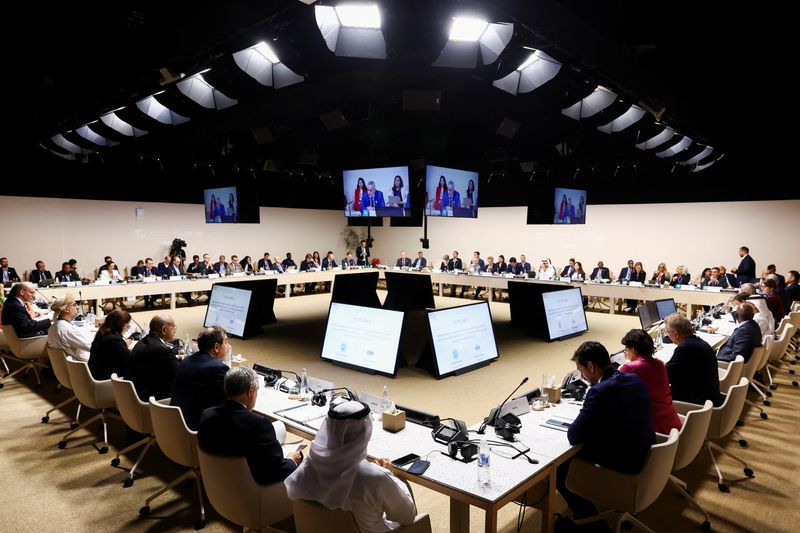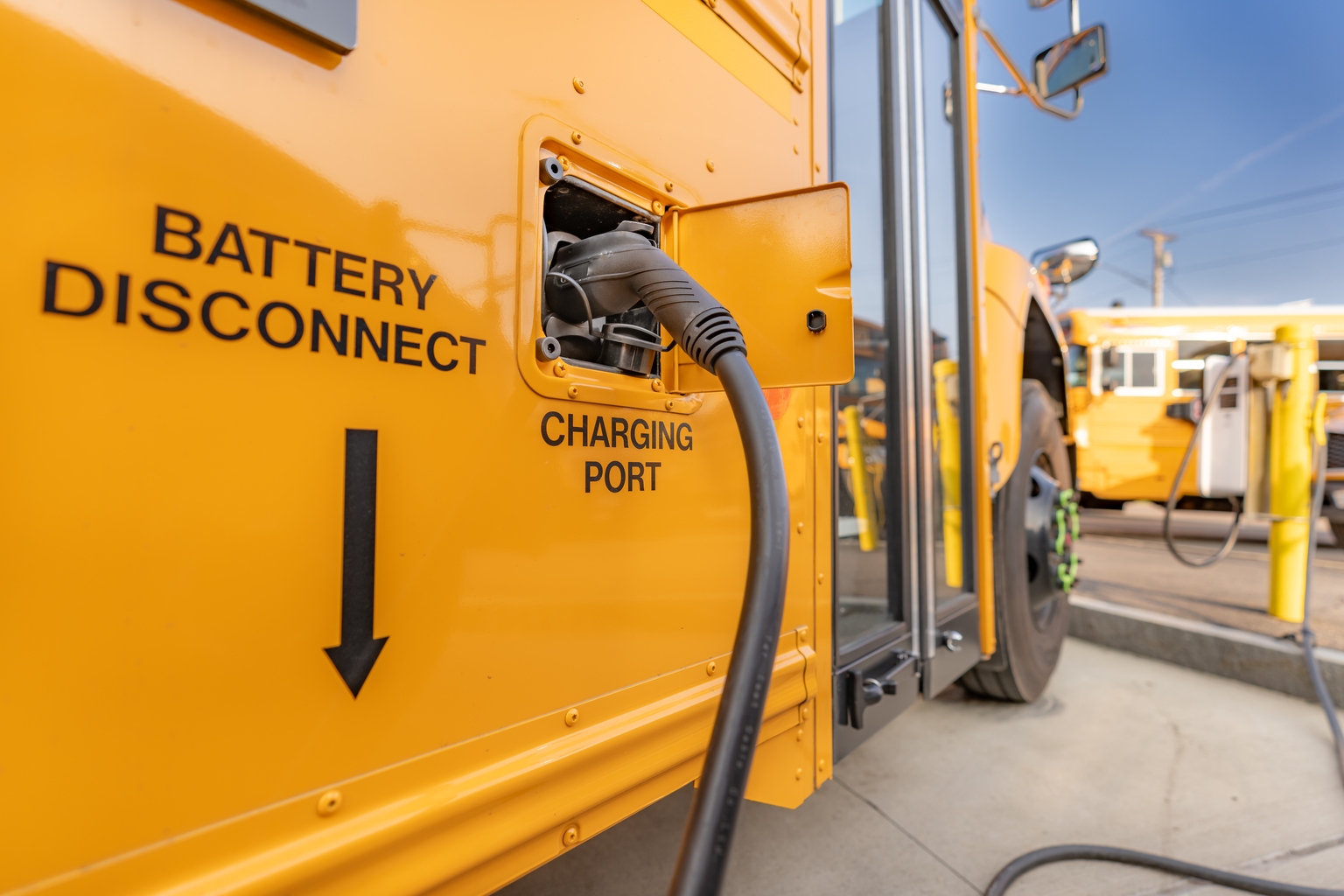[ad_1]

© Reuters. A general view of a round table on the commercialisation of Hydrogen at the United Nations Climate Change Conference COP28 in Dubai, United Arab Emirates December 5, 2023. REUTERS/Amr Alfiky
By William James, Kate Abnett
DUBAI (Reuters) -There’s an unprecedented deadlock at this year’s COP28 U.N. climate summit over who will host next year’s event.
The conference’s opening days saw scant reference to COP29, unlike in previous years, when speakers usually namecheck the next COP presidency to show that the world’s climate fighting strategy is mapped out for years to come.
By this stage, the next host is normally planning the summit and laying the diplomatic groundwork for their presidency.
Under U.N. rules, it is the turn of eastern Europe to host a COP, and the decision must be unanimous by all countries in the region. The Ukraine war, however, has made that all but impossible.
Russia, which is being sanctioned by the European Union for invading Ukraine, has opposed holding COP29 in an EU member state and is blocking Bulgaria’s bid.
The other two potential hosts, long-term adversaries Armenia and Azerbaijan, are ruled out because they refuse to back each other.
No one else has so far publicly announced a bid, and the absence of a host hasn’t gone unnoticed.
“It really is necessary to know where we’re going next,” said Carmen Roberta Taboada, a delegate from Brazil which has already signed up to host COP30.
“We don’t have a place for COP next year… so how are we going to agree on such important issue as climate change?”
HOST WITH THE MOST
The host of the annual COP, which stands for Conference of Parties, does more than provide a venue and accommodate tens of thousands of participants from around the world.
The presidency, which informally begins its work at the close of the previous COP, involves 12 months of lobbying global governments to lay the groundwork for deals. When their COP summit kicks off, the presidency has a huge influence on its agenda and outcomes.
Current COP28 President Sultan Al-Jaber of the United Arab Emirates last week urged eastern Europe to “accelerate and finalise” discussions on who will host COP29, and assigned a negotiator to help find a solution by Dec. 12, when this summit is due to end.
So far, no solution has been announced.
By contrast, the UAE’s presidency was announced over two years ago for the Asia-Pacific region. Brazil said last year it would host COP30 when the presidency swings to Latin America in 2025, and India last week volunteered for COP33 in 2028.
Hosts need time to prepare both the diplomatic groundwork and logistics for the massive event, which this year attracted a record 97,000 registered delegates. COP presidents usually tour the world ahead of the summit.
Christiana Figueres, a former U.N. climate chief, called the decision on a COP29 host “another critical moment in building global ambition”.
UAE AGAIN?
U.N. guidelines state the host country should rotate between the five global regions, and countries in that region need to agree about who takes it on.
Without such an agreement, creative options are in play.
Delegates have mooted having one country hold the presidency while another stages the event, effectively splitting the burden of having to both guide and host the talks.
That would allow smaller eastern European countries that might not have infrastructure for a massive summit to raise their hand for the presidency. The event could then take place at the U.N. climate body’s headquarters in Bonn, Germany.
The UAE has said it has no intention of hosting for a second time, but it remains a possibility. If no host can be chosen, the presidency could stay with the UAE for a second year, but with Germany holding the event.
That option, which would mean another year of climate negotiations led by an OPEC member, is divisive.
Given the many voluntary pledges made by governments and businesses at COP28 so far, returning to the UAE could “be good to make a proper assessment” of whether those promises are kept, said Ivory Coast delegate Mamadou Doumbia.
Others who were sceptical of the oil-producing UAE presidency are strongly opposed.
“We can’t do it here again. As comfortable and as beautiful as this venue is … it is not morally and ethically comfortable to host COP29 here,” said Dallas Conyers, attending the COP with campaign group U.S. Climate Action Network.
For daily comprehensive coverage on COP28 in your inbox, sign up for the Reuters Sustainable Switch (NYSE:) newsletter here.
[ad_2]
Source link












